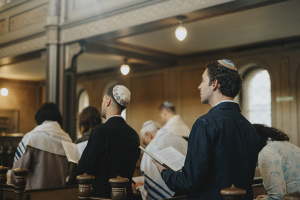Happiness: The Christians' Vindication?

Many in our society seem to do everything they can to squelch Christianity, as the following examples illustrate:
•A retired Lutheran minister might get expelled from his retirement home. Why? For having Bible studies there.
•A chaplain was facing punishment for not facilitating a lesbian couple's "marriage" retreat, because it violates his conscience.
•A Christian baker fought all the way up to the Supreme Court to defend against being forced to bake a same-sex wedding cake, lest it violate his conscience. The high court sided with him. Now Colorado is persecuting him again for not being willing to bake a cake to celebrate a transgender's transition.
It's as if in this country, founded by Christians for religious freedom, which we've then extended to everybody else, Christians are not free to practice their own religion.
Ah, but here is what is interesting about all this anti-Christian fervor in our time. Happiness often eludes the anti-Christian bigots. Who was happier? Saul of Tarsus (who persecuted the Christians) or Paul the Apostle (Saul of Tarsus, transformed by the risen Christ)? Paul learned that all are welcome to believe in Jesus and experience the positive things that flow thereafter.
I don't follow Jesus to be happy here on earth. He's the one who said, "Blessed are those who mourn." Essentially: "Happy are the sad." Wait, if they're sad, how can they be happy? The first step to a blessed life is to mourn over one's sin. This points to our need for a Savior. Paul even said, if only for this life we are Christians, we are to be pitied more than all.
What got me thinking about all this---the personal, quiet happiness of the run-of-the-mill active Christian---was a recent story from the BBC (8/27/18) about happiness and the Scandinavian countries, "Why Nordic countries might not be as happy as you think." Despite the headline, however, Scandinavian countries consistently score among the highest on the happiness scale.
The article concludes: "So the picture in Denmark, Finland, Iceland, Norway and Sweden does remain relatively rosy---just not as perfect as some may have painted." What I found most interesting in the article is this statement: "Very religious people were more likely to be happier." So the happiest people in the happiest countries are the religious ones (and that's in a Christian context).
The Mayo Clinic has been studying happiness for quite some time. They posted the summary of their findingson happy people on 4/20/18: "...their lives are built on the following pillars:
• "Devoting time to family and friends
• "Appreciating what they have
• "Maintaining an optimistic outlook
• "Feeling a sense of purpose
• "Living in the moment."
An active, practicing faith in Christ cultivates this type of lifestyle. For example, under the notion of appreciating what you have (as opposed to coveting what you don't have), Mayo talks about the importance of giving-thanks: "Make a commitment to practice gratitude. Each day identify at least one thing that enriches your life. When you find yourself thinking an ungrateful thought, try substituting a grateful one."
The Christian faith beat them by 2000 years in their findings. Paul said to give thanks, even in all circumstances.
In his case, he underwent many difficult circumstances. In 2 Corinthians 11, he goes through a litany of what he had suffered as an apostle for the Gospel's sake. He was shipwrecked, robbed by thieves, stoned and left for dead, flogged, imprisoned, and endured other hardships. Yet, this very same man could declare: Give thanks in all circumstances.
Actively living as Christians means applying Christ's Golden Rule, treating others as we would like to be treated. It means forgiving others (letting go of bitterness), and being forgiven by Christ who died for us. It means valuing relationships over things. "For it is in giving that we receive," to quote the Prayer of St. Francis. It means being a part of the largest family in the whole world, the Body of Christ.
Recently, I experienced the loss of some important worldly goods. But through it all, I kept remembering this statement of Jesus: A man's life does not consist in the abundance of his possessions.
So what is the Christians' vindication in a society that continues to marginalize us? Personal happiness and a sense of well-being, because our lives are based on a higher purpose—not to mention what we look forward to in the next life. Indeed, one of my favorite sayings is: "All this and heaven too!"




























